7 secret study tips for competitive exams
7 secret study tips for competitive exams
Introduction
Are you preparing for a major exam like Waec, Or Jamb? And you are Finding it hard to study or prepare for the exam. Here are 7 Secret study tips that will help you study better.

1. Create a Personalized Study Plan
The first Tip is to create a study plan, You should tailor your study plan according to your strength and weaknesses.
Review your schedule and look for the perfect time that is suitable for you to study.
You should also prioritize the difficult topics and fix breaks in between so you can rest.
One thing you should not do is to try to copy a friends study plan simply because it works for him or her. What works for one person might not work for another.
You should create the study plan based on your own personal preference and what works for you.
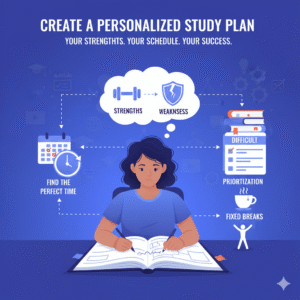
2. Use Active Recall
Active recall is a learning method where by you continuously test yourself by pulling information out of your memory instead of just passively reading notes.
This method makes your brain active and makes it easier to remember things you’ve read because you have been actively trying to recall that particular thing from your brain.
You can do active recall by using Flash cards, testing yourself with a quiz, trying to summarize what you read or by teaching someone else.
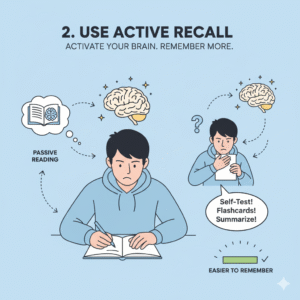
3. Apply Spaced Repetition
Spaced repetition is when you space out your study session for each topic for days or even weeks. Rather than just cramming for the texts.
One of the worse things to do while studying is Cramming because once you cram you aren’t learning anything you’re just storing answers on your brain and after exams you forget everything.
But with spaced repetition you will be able to study and revisit what you have learned over a period of thim and which will make it easier for you to recall what you’ve learned.
Spaced repetition also reduces forgetting because you keep asking your brain for that information that you studied at different intervals.
Here’s a quick example of spaced repitition
You study on the first day
The next 2 to three days you review it then you review it again after 5 days then you continue for weeks or even months that way it will be very difficult to forget it.
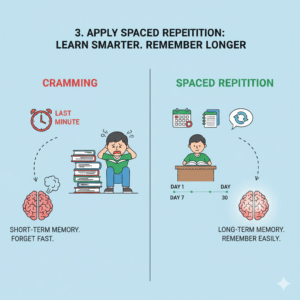
4. Practice with Mock Tests
Practicing mock test is when you set questions for yourself based on what you read.
This method is very effective because it gives you the examination experience,and it allows you to discover your strength and weaknesses before writing the examination
Also time yourself during the test to have that examination feeling and avoid distractions.
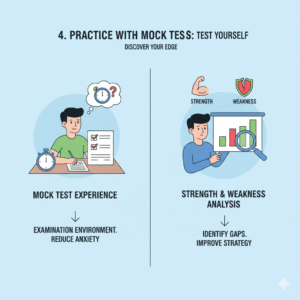
5. Teach What You Learn
Explain what you’ve learnt to your friends or even your siblings because while teaching you will also be recalling what you’ve learnt.
If there’s no one to explain to you can also explain to yourself that way you can clarify understanding and reinforce learning.
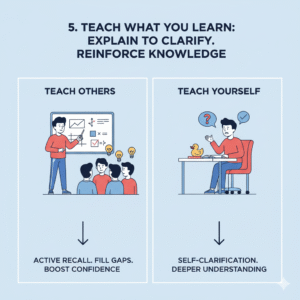
6. Take Care of Your Mental and Physical Health
Ensure that you maintain 7-8 hours of quality sleep, maintain a healthy diet with brain-boosting foods, stay physically active.
Also practice stress reduction techniques like meditation. A healthy body supports a sharp mind for effective study.
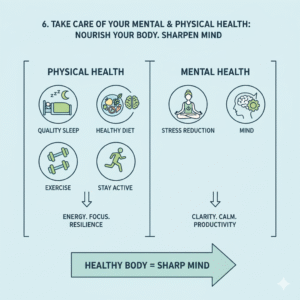
7. Create a Conducive Study Environment
When studying it is important that you study in a conducive environment.
Study in a quiet place that’s free from distractions, ensure you stay away from your phone when studying and also study I’m a clean and healthy environment.
Now when we talk of conducive study environment it may differ from person to person.
Some people might prefer listening to music which might be like a distraction to someone else. So you just need to find what works for you and continue doing it.
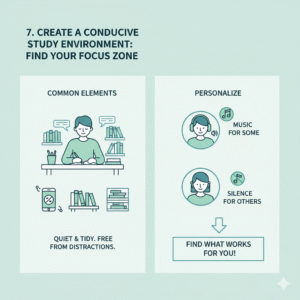
Conclusion
Success in examinations is not only about studying harder but also by studying smarter.
By following Study tips like practicing active recall, spaced repetition and having a study plan, you shift from passive reading to active learning.
Also remember to take care of your physical health and maintain a healthy diet.
If you find this article helpful please share and leave a comment if you have any questions, bye



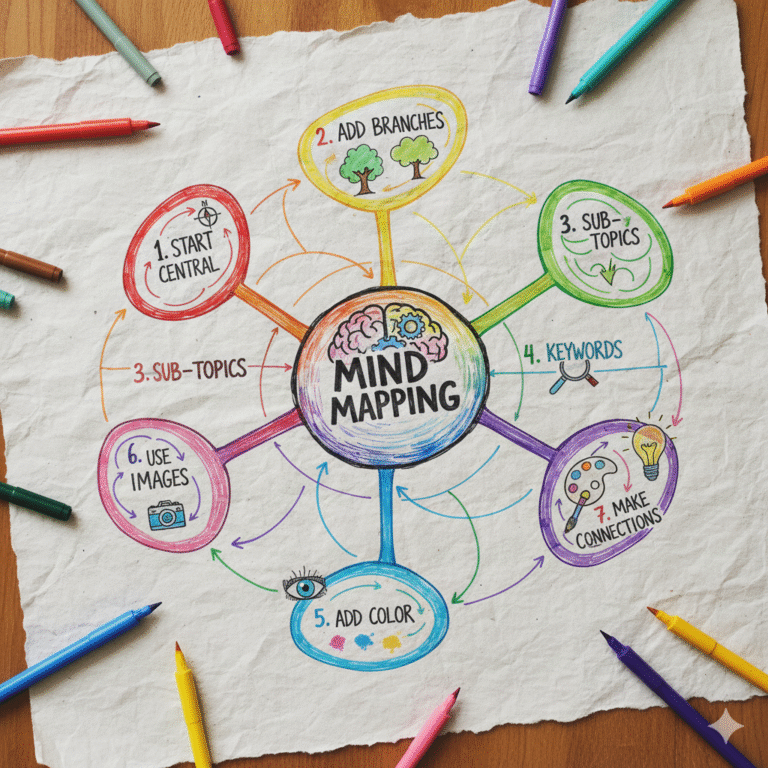


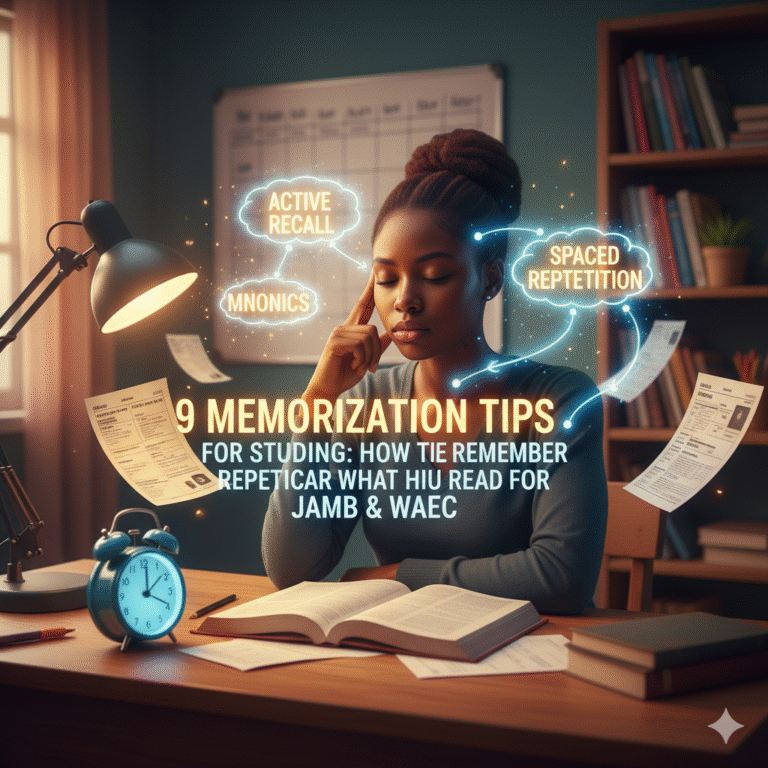
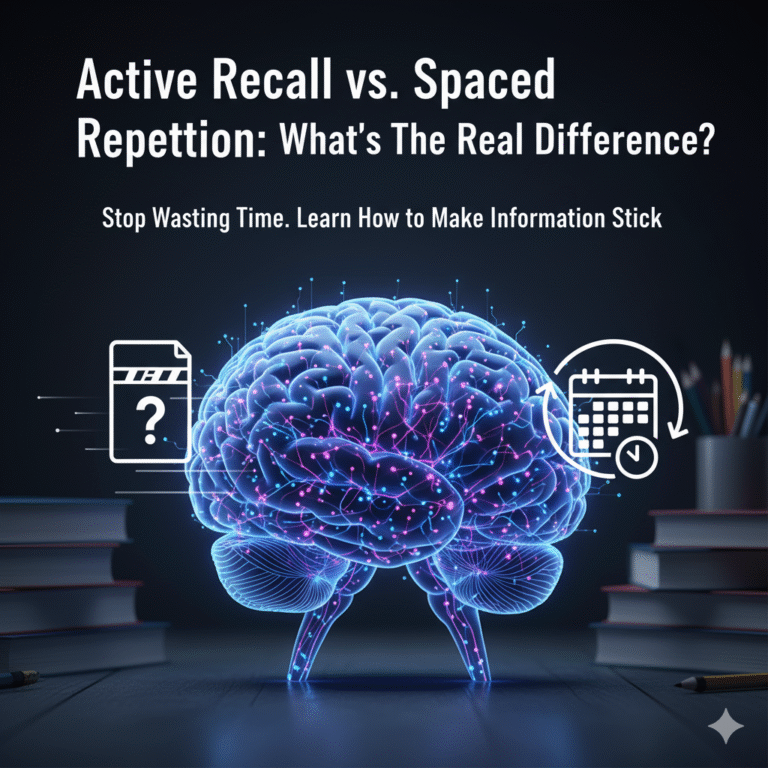
7 Comments